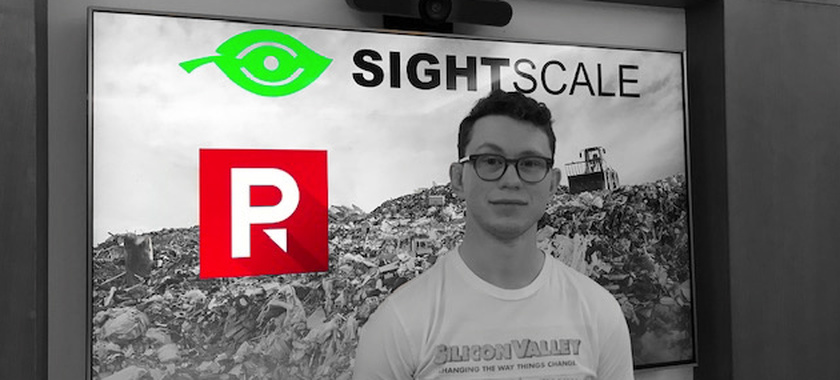SightScale : AI for Waste Management
When Innovation Saskatchewan and the Ministry of Environment hosted an Innovation Challenge to find solutions for better waste disposal and diversion, Sam Dietrich and his team at Prairie Robotics won the challenge and created SightScale. SightScale uses cameras and artificial intelligence (AI) to weigh and estimate the true amount of waste entering our landfills.
"We have one-hundred and ninety landfills in Saskatchewan alone and a majority of them don't have weight scales. Operators have to guess at the amount of waste coming into the site and there is not a true idea of what the landfills are actually collecting," shares Dietrich.
SightScale estimates the amount of waste, the waste type, and the vehicle-type to create a full report for landfill operators. Residential and industrial users can be charged accurately instead of through an estimate, whether there is a weight scale or not.
Using AI and cameras to provide more accurate data allows people that manage landfills to avoid purchasing weight scales that can cost around $100,000 and also make better decisions on building new sites or seeing what types of material are increasing or decreasing.
"Our team always knew we wanted to use artificial intelligence to help solve the problem of waste management, but as we talked to stakeholders and landfills we realized that real-time reporting and having a big picture of what is happening was just as important fo the landfills and for the policymakers to make better decisions," he adds. "An example of this regional collaboration would be noticing a high amount of concrete being received at a number of waste sites in southwest Saskatchewan, and then creating a centrally located concrete recycling plant in that area."
Dietrich also points out the environmental and recycling applications of the technology. "Not only can landfills use our system, recycling and eco-centres can also benefit from this tech. I'm passionate about being more environmentally friendly and having a far better understanding of what we are throwing out."
The Prairie Robotics team is well suited to create this technology. Dietrich, Joshua Friedrick, Caleb Friedrick, and Dan Kertai won two international robotics competitions in the past and eventually sold their technology to DOT, an autonomous agriculture technology company from Regina. They intend to grow and master their technology within Saskatchewan and then release it to the world.
"We are starting in Saskatchewan and working with local landfills but our goal is to take it as far as it can go. We are a part of the eco-movement and we see a growing concern. We want to be the world's solution too."


